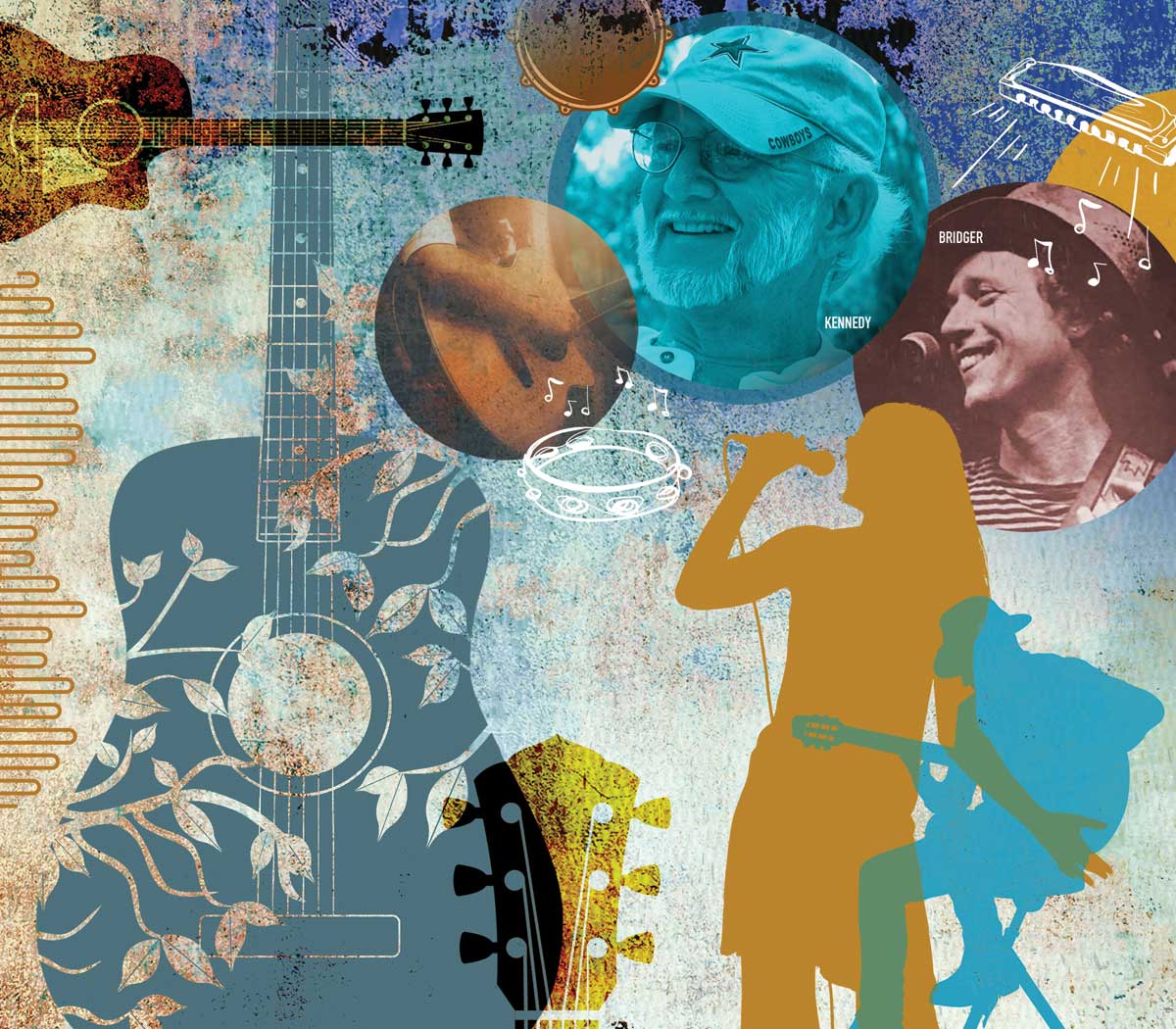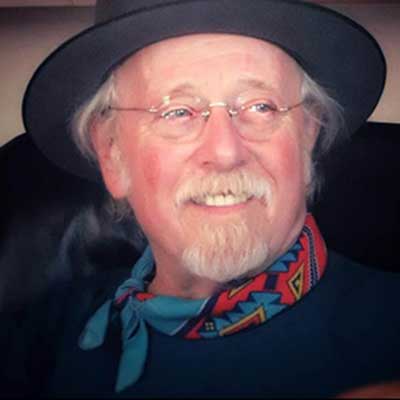Buffalo Bill made a fortune and built his Wild West show into an international empire by following one simple rule: Perform where people are already gathering.
So in 1972, when the people behind the inaugural Texas State Arts and Crafts Fair reached out to music impresario Rod Kennedy about providing entertainment for their Memorial Day weekend event in Kerrville, Kennedy saw an opportunity. Between the folks gathering in the Hill Country and the large contingent of artists, musicians and students in nearby Austin, the Kerrville Folk Festival was meant to be.
Now, as the festival approaches its 50th anniversary, time has proved that Kennedy picked the perfect location for an annual celebration of songwriters. It’s the longest continuously running folk festival in America. It has played a significant role in launching the careers of scores of international musical stars and, in doing so, continues to shape the trajectory of American folk music. This year’s milestone fest runs May 26–June 12.
Back in 1972, America had entered a new era of music festivals. The Monterey International Pop Festival in California and Woodstock in New York were defining events of the counterculture era of the late 1960s.
Even then, Austin clubs attracted a range of talented singers and songwriters who found success on the fringes of the recording industry but felt it constricted their musical vision. This community of musicians and the University of Texas students who filled out their shows created a culture conducive to Kennedy’s next move.
Kennedy and Peter Yarrow of folk trio Peter, Paul and Mary got to work, and in May 1972, Steven Fromholz, Carolyn Hester, Bill and Bonnie Hearne, John Lomax Jr., Mance Lipscomb, Michael Martin Murphey, and eight other acts performed on the main stage at the first Kerrville Folk Festival. Former President Lyndon B. Johnson and Lady Bird were in the audience with Longhorns football coach Darrell Royal that year, when the fest was still held at the Kerrville Municipal Auditorium downtown.
Kennedy ran the festival with input from the performers. He was a former big band singer and race car driver, a Marine, and a lover of classical and folk music. He was a singular character of the era who could convince folk artists to work for a vision instead of money and come together for what he called “music from the heart.”
That love for music and songwriting held the Kerrville Folk Festival together during its very rough first two decades. The main stage lineup in 1973 included Allen Wayne Damron, Willie Nelson, Robert Shaw, B.W. Stevenson, Kenneth Threadgill, Townes Van Zandt, Jerry Jeff Walker and me. I also played the inaugural festival—and the next 26 fests. In 1972 I wasn’t on the main stage but played as part of the New Folk Concert, held outdoors at Schreiner College in those early years. The idea behind the New Folk Concerts was to create a platform to showcase lesser-known talent, and the concerts later became a competition for folk performers and contributed greatly to the success of artists including Robert Earl Keen, Lyle Lovett, Nanci Griffith and John Gorka.
Since 1974, the festival has been held outdoors at the Quiet Valley Ranch, about 16 miles outside Kerrville.
Songwriters Steve Young and Van Zandt and I were the judges for the New Folk Concert in 1977. After we made our choices for the top three songs and I had announced the winner, I took Kennedy aside and told him that the judges agreed the New Folk Concert was no longer a simple showcase for new singers and songwriters. It had become a launch pad for careers in folk music. I suggested we needed a new venue to showcase unrecognized talent and put forth Chapel Hill, which had a lovely oak that could also be a great location for a “ballad tree,” where unknown artists could perform a couple of songs for a concert hosted by a main stage artist. Kennedy liked the idea, and it became a staple of the annual festival. In the mid-1980s, someone recorded Michelle Shocked performing at the tree, and the recording launched her into stardom.
In 1979, I was rehearsing with musicians David Amram and John Inmon backstage at the festival preparing to go onstage. I was teaching them a new song of mine called Heal in the Wisdom. Kennedy heard us rehearsing and told me he wanted the song to be the festival’s official anthem. We celebrated the anthem’s 40th anniversary in 2019.
Drawing on the hardscrabble drive that keeps folk musicians afloat, Kennedy willed the Kerrville Folk Festival through floods and other hardships until his death in 2014. Folk singers and songwriters have since kept alive his vision and determination, keeping it going through the COVID-19 pandemic, which forced the festival to resort to livestreaming for the past two years.
We couldn’t let a virus get in the way of decades of coming together to celebrate singers and songwriters. And we still found a way to meet people where they were already gathering—online—and celebrate our sacred music from the heart.



